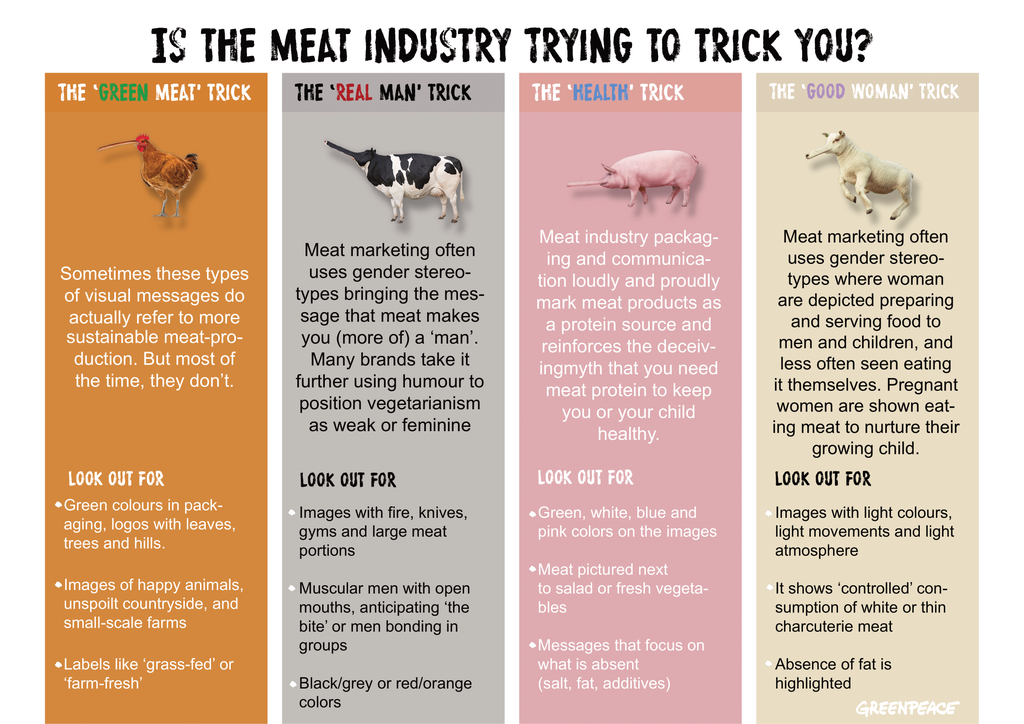What does “being a man” have in common with eating meat? Or “being a good mother” with cooking meat for dinner?
Nothing!
But the meat industry wants us to believe otherwise, or at least it seems that way if we take a look at their advertising campaigns.
The 7 myths of Big Meat’s marketing
According to a Greenpeace Denmark study released today, Dissected, the 7 myths of Big Meat’s marketing while the number of vegetarians, vegan and flexitarians is rising in Europe, the meat industry is going against the tide by investing millions of Euros in meat marketing in the attempt to slow the change in society.
The semioticians that worked on the research, who are experts in decoding hidden meanings behind advertising, found 7 myths often adopted by big meat brands and organisations in Europe, that play to known consumer needs to feel accepted, successful, loved, respected and ultimately, to feel ‘good’, and as a result fuel meat consumption:
• Myth 1: ‘Meat is part of the climate solution, not the problem’
• Myth 2: ‘Meat is good for you’
• Myth 3: ‘Eating (red) meat makes you more of a man’
• Myth 4: ‘Good women prepare and serve meat to their family’
• Myth 5: ‘Eating meat is a patriotic act’
• Myth 6: ‘Eating meat brings people together’
• Myth 7: ‘Eating meat is about freedom and choice’

It’s time to regulate meat advertising
To make things worse: these myths are targeted to some of the most vulnerable groups in society. Young children, for example, who are not fully capable of processing the information in front of them. Or young adults who might be wrestling with their sexual identity. And of course parents, trying to do the right thing for the future of their children in the midst of the deepening climate and biodiversity crises.
While as citizens we can play our part by reducing our intake of animal products for our health and the wellbeing of the planet, it is actually the public authorities’ responsibility to make sure that our efforts are not derailed by the misleading bombardment of meat advertising.
The marketing playbook used by the meat industry is no different from the one deployed by the tobacco or alcohol industries in the last decades. Advertising of tobacco and alcohol has been highly regulated for the well-being of society. Shouldn’t it be about time to also start regulating advertising for the well-being of the whole planet and apply similar restrictions to meat marketing too?
Alessandro Saccoccio is a campaigner at Greenpeace International, based in the Netherlands.



